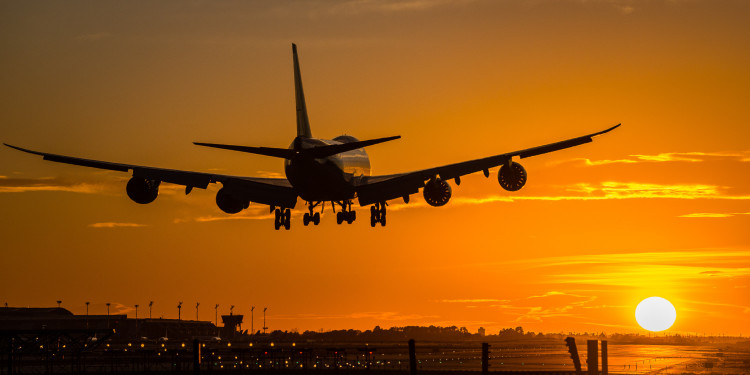
Used cooking oil, synthetic fuel or even hydrogen should become the norm as aviation fuel to help the European Union become climate neutral by 2050
July 7, 2022
The European Parliament adopted its position on new draft EU rules to increase the uptake of sustainable fuels by EU planes and airports, in order to cut emissions from aviation and “ensure Europe becomes climate neutral by 2050.”
The Parliament revised the proposed definition of sustainable aviation fuel (SAF), a term that covers synthetic fuels or certain biofuels, produced from agricultural or forestry residues, algae, bio-waste or used cooking oil.
MEPs included under their definition recycled carbon fuels produced from waste processing gas, and exhaust gas deriving from the production process in industrial installations.
Some biofuels, produced from animal fats or distillates, could be included in the aviation fuel mix for a limited amount of time (until 2034). However, MEPs excluded feed and food crop-based fuels, and those derived from palm oil, soy-derived materials and soap stock, because they do not align with the proposed sustainability criteria.
This move comes after climate NGOs and airlines have called on lawmakers to narrow the definition of sustainable aviation fuels ahead of the European Parliament vote of today.
In addition, MEPs also include renewable electricity and hydrogen as part of a sustainable fuel mix; both are promising technologies that could progressively contribute to the decarbonisation of air transport.
The ReFuelEU Aviation initiative is part of the “Fit for 55 package”, the EU’s strategy to reduce greenhouse gas emissions by at least 55% by 2030. The package is part of the Commission’sEuropean Green Deal.
Sustainable fund and EU labelling system
The Parliament proposed the creation of a Sustainable Aviation Fund from 2023 to 2050 to accelerate the decarbonisation of the aviation sector and support investment in sustainable aviation fuels, innovative aircraft propulsion technologies, and research for new engines.
In order to promote the decarbonisation of the aviation sector, and to inform the public about greener aviation, MEPs have agreed with the Commission to develop by 2024 an EU labelling system on the environmental performance of aircrafts, operators, and commercial flights.
European Parliament rapporteur Søren Gade (Renew, DK) said: “Aviation is one of the hardest sectors to decarbonise. Today we showed how to do this and sent a strong and ambitious signal to the citizens of Europe. We heard you when you called for climate action, and we are working as much as we can to achieve a truly green Europe.”
The negotiating mandate was adopted by 334 votes to 95 and 153 abstentions. The rules will now be put forward for approval by member governments and the EU Commission.
Subscribe to our newsletter.
The push for greener aviation fuels comes simultaneously while MEPs discussed today therecent heat wave and drought in the EU, and what measures the EU can take to help remedy the situation and prepare for future crises. A resolution will be put to the vote in the next plenary session.
This article was originally published on IMPAKTER. Read the original article.



